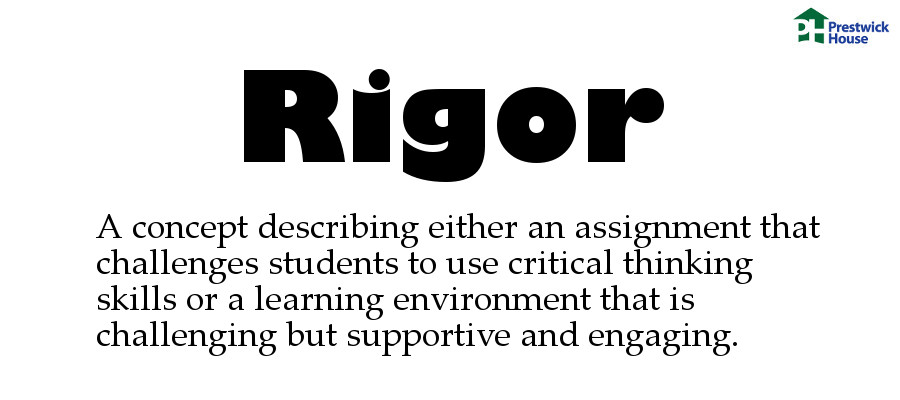What is rigor?
When we talk about rigor, we're talking about assignments and environments in which students are challenged to grow as students and as people.
Rigor isn't synonymous with high difficulty; rather, assignments that are rigorous set high but reasonable and fair expectations for students. This means that rigorous assignments vary by student ability level—a student with high ability is likely not going to be challenged by an assignment designed for students with lower ability, and a student with lower ability may not be able to complete an assignment designed for higher-ability students in a satisfactory manner. In both these cases, students aren't being served as well as they could be.
Either of the following two items could be described as rigorous:
- A learning assignment that encourages students to use critical thinking skills and creative thinking to analyze and/or interpret information, synthesize a new idea from two or more sources, question their assumptions—generally, do more than just supply a "correct" answer on a test or worksheet
- A learning environment that is supportive, encouraging, challenging, and engaging, in which there is two-way communication between teacher and student to facilitate personal growth
What kinds of assignments generally aren't rigorous?
Rigor is about challenging the student to use critical thinking or higher-order skills like analysis or evaluation, so assignments that depend on memorization and/or recall can't really be considered rigorous.
Answering multiple-choice questions or filling in blanks on worksheets, then, isn't rigorous work, nor is answering short-answer questions that ask students for facts only. For true rigor...

Questions? Let us know!
If you'd like to talk about rigor, drop us a line at info@prestwickhouse.com. Just include "rigor" in the subject line, and we'll get this dialogue going.
